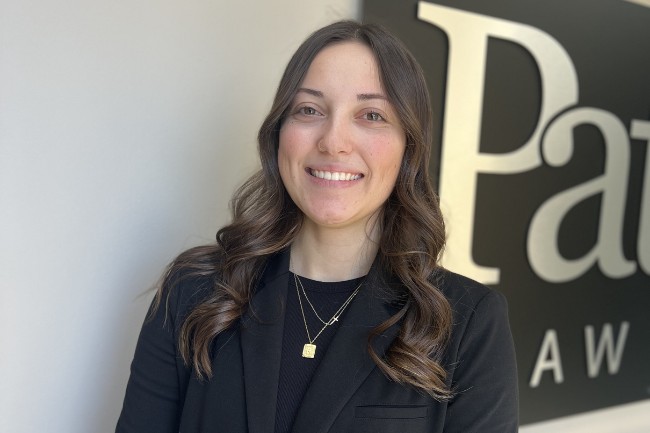TheVA benefits programencompasses a wide network of opportunities. Benefits may be available for those who have served as active-duty military service members and been given official discharge status as well as members that are actively serving. In addition, benefits can vary from state to state. Once a member has served 24 consecutive months or finished their active-duty period, which can be only 90 days, they can begin looking at the benefits available through the VA. A common question for older veterans is whether there are VA nursing care benefitsavailable to them and how they can become eligible for the VA to pay for nursing care both in-home as well as in a care facility.
*This blog is for educational purposes only and should not be considered legal advice. The use of the Paths Law Firm website does not constitute a client-lawyer relationship.
The program includes a variety of stipulations before determining eligibility. The enrollment process involves priority groups, which are divided based on a long list of legal factors including discharge status, length of service, dates of service, financial assets, income limits, service-connected disabilities, and more. All of this information can be obtained through the benefits program during the enrollment phase. It’s important to note the availability of VA services or resources will vary depending on these groups.
For those seeking access to VA nursing care benefits, for either in-home assistance or nursing home care, it’s recommended to go through the eligibility requirements before applying.

Here’s a detailed look at the main qualifications and the benefits they entail.
VA Nursing Care Benefits Qualifications
The first step to qualify for nursing care benefits involves a rigorous eligibility evaluation to determine who does and doesn’t receive benefits under the established VA program. These eligibility rules and regulations periodically change and are typically updated on theVeterans Administration website. It’s best to seek legal assistance when it is time to qualify for VA benefits to ensure these requirements are met.
Based on studies done on the subject of VA benefits and qualifications, there are set costs involved in Missouri for services including home care, assisted living, and nursing facility care. These costs tend to fall below the average nationwide and can vary from place to place. Each city and/or region has its specific requirements during qualifications and include the set costs in place.
If a veteran and their spouse do not qualify for theAid & Attendance Pension Benefitthen the associated benefits available through the VA program can be used to offset these costs. This benefit can offer up to $1,794 per month to vets, $1,153 per month to spouses, and $2,127 per month to couples. There are additional stipulations in place for veterans with ill spouses.
VA Benefits Based on Priority Groups
Before enrolling in the VA benefits program, veterans will be split into different priority groups. These groups include a specific segment reserved for those with disabilities caused by active-duty service in the military. In addition, a veteran that was disabled during active-duty service and has a 50% disability (minimum) will be placed in Priority Group 1. Please note, this doesn’t mean veterans without disabilities are ineligible benefits. This is only used as a determining factor for when the enrollment goes through. This determines the benefits a veteran is eligible to receive, and how much they receive.
Benefits are based on VA Priority groups. You can find more information on Priority groups here:https://www.va.gov/health-care/eligibility/priority-groups/.
VA Income and Financial Limits
The VA has a specific set of financial requirements in place for those enrolling in the benefits program. These limits are based on household income for the previous year and or net worth.
For the state of Missouri, the annual income limits are set as follows –
- Pension – $18,008
- Household Benefit – $21,063
- Aid & Assistance – $27,195
It’s recommended to go through these annual income limits with an experienced legal professional to determine where you fit. This can prove to be an important part of the process especially for those with multiple dependents at home. At Paths Elder Law, we focus on helping seniors and their families through legal solutions. If you need assistance with VA benefits, Contact us to schedule an appointment.

Discharge Status for Veterans
Veterans are required to show at least 90 days on active duty if active duty started before September 8, 1980 and a two-year record of active-duty service if started after September 8, 1980. Please note, any veteran that has been dishonorably discharged will not be eligible for VA benefits.
In some cases, there are exceptions made for those who don’t meet the length of service stipulation, and these include:
- Veterans Discharged/Released From Active-Duty Due To A Personal Hardship
- National Guard or Reservists Called To Active-Duty During Term
- Veterans Discharged Before Sept 7th, 1980
- Veterans Needing Treatment Due To Disability Before Term Was Completed
If there is any doubt regarding the discharge status, it’s best to seek legal assistance and determine whether or not the veteran or the surviving spouse is eligible for VA in-home care and/or VA nursing care benefits.
Concerning geographic criteria, veterans are not impacted based on where they reside as there are national regulations in place for who is eligible and who is not. However, there are differences in the maximum allowable amount of income changes depending on where a veteran legally lives at the time of application.
Also, there is no impact when it comes to a veteran’s personal life (i.e. age, marital status) to receive VA benefits. The only time this specific factor plays a role is when the enrollment is designed to assist multiple dependents at home and when the household income is determined. It’s important to understand the annual income limits based on the rules in place for multiple dependents when applying for VA nursing care benefits.
General Information for VA Nursing Care Benefits
There are VA benefits for in-home care and nursing home care that may be compensated directly to personal care attendants, medical care facilities, and medical professionals. These benefits may not come in the form of cash deposited to a veteran’s account. This includes the amount that is made available to veterans in Priority Group 1 (see priority group information above). For those receiving any form of long-term care, there are co-pays involved that will range depending on a person’s case (i.e. $0-$100/day). Veterans that have any type of service-connected disability are not required to participate in co-pays.
When the application is made, a VA representative will go through all relevant information including IRS filings to determine whether or not an individual is eligible. This process may take 2-3 months, or longer depending on complexity and the VA’s backlog.
Time Limits
Before receiving access to any type of VA benefit, it’s important to note there are time limits for those not dealing with service-connected disabilities.
Any veteran that is not eligible for being in one of the priority groups can only receive 6 months of care, but this can be cut to 1-2 months depending on the resources available at the time. Only veterans in priority groups can receive as much long-term care as necessary to keep them medically stable. However, even in these cases, the stays may be cut based on resources and priority between groups.

VA Nursing Care Benefits for Long Term Needs
Skilled Nursing – This refers to specialized nursing care provided at VA nursing homes, within VA-based homes, or State Veterans homes. The nursing care benefits are provided to those not living close to their family. The program itself is divided into two distinct categories depending on the veteran’s eligibility. The first program is for temporary care and is termed as “Community Living Center Care,” while long-term care services are termed as “Community Nursing Home Care.”
For this determination to be made, individuals applying for benefits must be assessed by a medical provider to determine what’s required medically. This includes assessing how medically stable a veteran is at the time of application.
Assisted Living – The VA also provides access to Assisted Living care through theCRC(Community Residential Care Program). Veterans receiving assisted living care through this program will receive specialized access to clinical and administrative services. Assisted living care is offered through VA facilities and/or government-approved facilities depending on the location. There are additional specialized assisted living programs to aid those dealing with dementia and Alzheimer’s.
In-Home Care – Veterans requiring assistance at home can also be enrolled in the in-home care program through the VA. This is titled as the VA’s “Homemaker and Home Health Aide Program” and it comes along with specialized options for approved members. This determination is made after a veteran shows they require someone at home for regular assistance. There are a variety of costs associated with this program based on which priority group a veteran is in at the time of enrollment.
Day Care – The VA offers access to a variety of adult day care programs to provide consistent supervision to those in need. These programs provide care for veterans during daytime hours when family members are not at home. This is an ideal option for those looking to stay at home while receiving appropriate care.

Additional Benefit Programs
The VA has alternative programs in place to assist those wanting to manage their personal care and/or health program instead of going through the government-regulated solutions. In these situations, the veteran will be eligible to go through what is termed as theVeterans Directed Home and Community Based Services.”
In these cases, a veteran will have access to respite, palliative, hospice, and telehealth services as deemed necessary.
It is important to note that there are no added costs associated with those enrolling in these programs. The only costs that can be deemed necessary are through approved co-pays.
In the state of Missouri, there are multiple care homes spread throughout the region. For those looking to receive long-term care, the veteran is required to be a legal resident in the state of Missouri for 180 days. There are also additional requirements including being medically approved for long-term nursing care and not having a dishonorable discharge on record.
Property Tax Credits To Help With VA Nursing Care
Along with VA home care benefits in the state of Missouri, veterans are also eligible for additional benefits such as property tax credits.
To determine these credits, veterans will have to file a separate claim. This claim can lead to 100% credits on all property tax costs paid for the year. However, there are set limits in place for these credits ($1,100 for homeowners, $750 for renters). Your personal amount is determined after a complete assessment of your real estate taxes/rent paid and total household income.

War Veteran’s Survivor Grant Program
The War Veteran Survivor Grant Program is available for family members associated with a veteran that was injured or died during combat. This grant program is also set up for those whose family member(s) fell ill during combat action or became disabled due to what took place in combat.
For family members to be eligible, the veteran must have been a resident at the time of joining the military service or when they were injured or died.
Application Process
For individuals wanting to apply for VA benefits, legal assistance is available. It’s recommended to work with a reputable attorney that has experience with the process. Many VA forms such as the Form 10-10EZ, for veterans with disabilities, include a variety of legal details that are expected to be filled out before the approval comes through. For veterans without any type of service-connected disability, a separate form is required to be filled out – VA Form 10-10EC. This form will inquire about specific personal information including current income levels. Once this information is processed, the benefits and copay’s for long-term care are established.

At Paths Elder law, we can help. When we meet, we will talk to you about your goals and provide different options available to you based on the VA’s qualifying factors. We will work with you to obtain all the documentation required to file for VA benefitsand to make the process as smooth as possible.
Paths Elder Lawhas the experience and knowledge to help determine VA eligibility. We help plan and apply for the most benefits available to you. If you or someone you know needs assistance with VA Benefits, Contact Us to Schedule an Appointment.






























